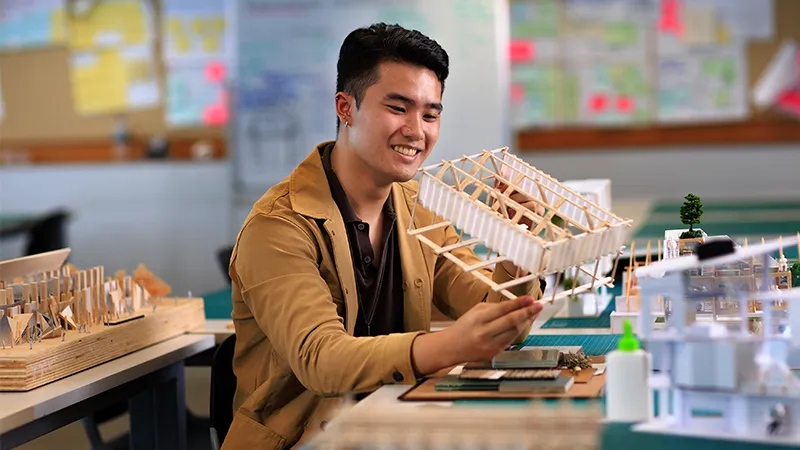Course Overview
The future of buildings is rapidly evolving, driven by advancements in technology and the pressing need for Sustainability. Buildings of the future are envisioned to be highly sustainable, energy-efficient, and integrated with smart technologies. The Diploma in Integrated Facilities Management will ensure you are more than ready for this growing industry!
As the world's first diploma accredited by the International Facility Management Association (IFMA), this course aligns closely with the core competencies of IFMA. We are also proud to be the first course to receive the GreenMark Associate Coursework Recognition by the Singapore Green Building Council, demonstrating our commitment to sustainability and green building practices.
Our diverse course curriculum will equip you with the knowledge and emerging skills in managing the amenities, aesthetics, and functionality of major establishments. You will gain exposure to Sustainability areas like Green Buildings, Life Cycle Analysis, Data Analytics and Data Visualisation, as well as smart technologies like Building Information Modelling (BIM), Internet of Things (IoT), Robotics & Automation and Asset Management.
Additionally, you can take an elective cluster and specialise in one of these 3 areas: Aviation Facilities, Hospitality Facilities, or Smart Facilities. In your final year, you can also embark on the University Pathway Programme and gain credits for admission into the National University of Singapore (NUS).
You can apply for scholarships that are only available to students of this diploma, such as the Mapletree Scholarship and Wan Fook Kong Scholarship.
You have the opportunity to attain these professional certification(s) throughout the course of your study:
- BizSAFE Level 2 (Risk Management)
- BizSAFE Level 4 (Workplace Safety & Health Management)
- Fire Safety Manager certification from SCDF
- Digital Delivery Management Certification- Tier 4 (Provisional)
- ICDL Microsoft Office Certifications: PowerPoint, Excel, and Excel Advanced
- Project Management Associate Certification (CAPM)
 Join the TP-NUS University Pathway Programme and get your degree sooner!
Join the TP-NUS University Pathway Programme and get your degree sooner!
 Conferred the “Greenmark Associate Coursework Recognition” from the Singapore Green
Conferred the “Greenmark Associate Coursework Recognition” from the Singapore Green
Building Council in 2024 – the first academic institution in Singapore to receive this honour.
To download a copy of our 4-page course brochure, click here.
/eng-t28-4 banner.webp)






/tp-nus.webp)
/eng-t28-5.webp)
/Green%20digitalisation.webp)
/Grad2.webp)
/mohamed-iqbal-shah-b-abu-bakar.webp)
/tang-hui-en.webp)
/3rd%20box.webp)
/eng-t29-tn.webp)
/2022-HTM-Thumbnail.webp)

/FB.webp)
/Instagram.webp)
/Youtube.webp)
/Tiktok.webp)



